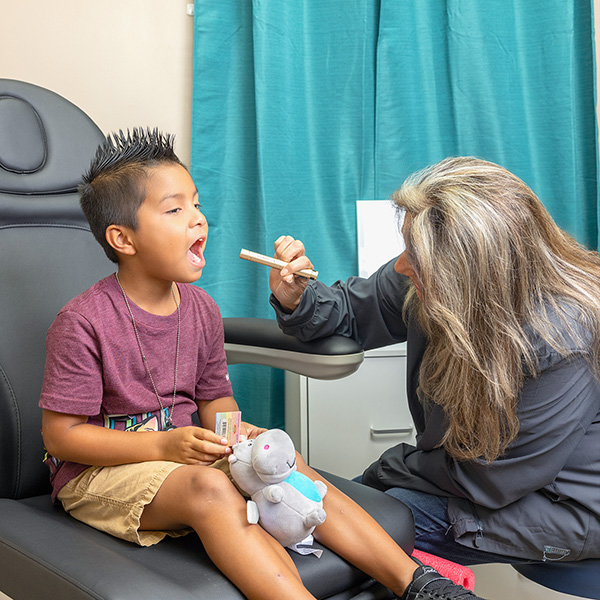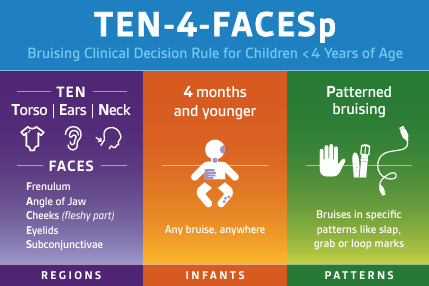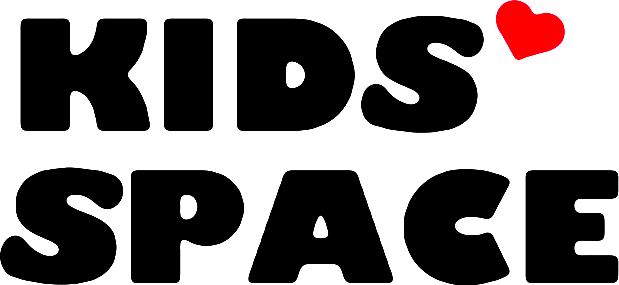Medical Evaluation

- All burns or fractures in children under the age of 3;
- All bruises or marks on children under the age of 2;
- Unexplained or implausibly explained bruises, burns or fractures in children of any age;
- All bruises, burns, or fractures in non-ambulatory children;
- All cases of reported malnutrition and failure to thrive;
- All cases of serious medical neglect; if the family claims to be providing medical care, a consultation with their doctor will suffice;
- Reports in which children have an observable injury, the caretaker admits responsibility for the injury and medical documentation is needed to determine if there are internal or old injuries;
- Children who exhibit signs or symptoms that indicate the need for immediate psychological or psychiatric evaluation.
- All referrals of sexual abuse in non-verbal children whose behavior mimics adult sexual behavior, for example, simulated intercourse or oral stimulation of another's genitals;
- All sexual abuse cases in which oral or genital skin to skin contact is alleged or suspected;
- All cases of sexually transmitted disease in prepubescent children;

- TEN-4 bruising: bruising in torso, ear or neck region in children up to 4 years of age OR any bruise in an infant 4 months old or younger
- Any injury in a non-mobile infant
- Any injury in a child that is inconsistent with history provided or unaccounted for play/ activity typical for developmental level of the child
- “Sentinel” injuries (poorly explained minor appearing injuries in non-mobile infants) are often dismissed as insignificant but have been found to be predictors of subsequent abuse/ severe injury
- Injuries of differing ages
- Patterned injuries to skin
- Disclosure/witnessed event of injury/ potential injury
- Siblings of victim child or other children in the same household where abuse occurred
Please refer to this screening tool to improve the recognition of potentially abused children with bruising who require further evaluation.
Acute/urgent cases will be scheduled as soon as possible not longer than 120 hours after suspected sexual contact. Indicators include suspected sexual contact within the last two weeks that doesn’t meet the above “emergent” indicator threshold.
Non-urgent cases will be scheduled at the convenience of the family, ideally within 1-2 weeks with indicators such as disclosure of abuse by child, sexualized youth behaviors, an MDT member suspects sexual abuse, family concern for sexual abuse but contact occurred more than two weeks prior without emergency medical, psychological or safety needs identified.
Follow-up evaluations will be scheduled as determined by the medical provider.
